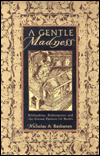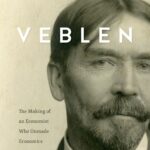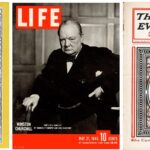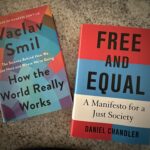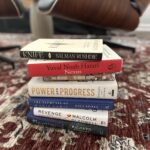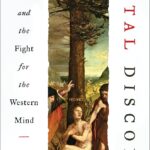“I wonder whether I am afflicted with something more than a “gentle madness,” as Nicholas A. Basbanes described it in his 1999 book on the history of book collecting,” writes this annonymous English professor from a Midwestern liberal arts college. “You see, I spend more on books than I do on food.”
This is a good essay on the reasons for collecting books. I have to admit that I can relate, although my collection isn’t quite so large. He writes: “There are at least 700 books in my English department office. There are another 200 stashed in filing cabinets in the hallway. In my home office I estimate there are more than 2,000 on the shelves and another 300 in a pile on the floor. There are about 400 books on cooking and gardening in the kitchen. And, finally, there are about 50 books on a shelf next to my bed. Those are the ones I intend to read soon. That shelf tends to fill up during the academic year and empty out during the summer.”
Benton, the professor’s pseudonym, lists reasons for his book collecting, including economics, pedagogy, aesthetics, community and preservation. “Increasingly, my fascination with old books makes me feel personally connected with dead writers more than living bibliophiles,” he writes. “Whitman understood that. He said of Leaves of Grass, “he who touches this book touches the man himself.” He liked to insert photographic portraits of himself in his books, along with inscriptions, and the pledge that he had personally handled the book. People don’t really “own” books; they are custodians of them for a time. Sometimes I think about who will own some of my books after I am gone, and I write short notes to them in the margins.”
I feel this way about some of the volumes that I have. I don’t buy books as heirlooms to be passed along; I probably buy more paperback than I do hardcovers. Yet, I often wonder if someone who leafs through the pages of one of my books will stop to think about how the words on the page affected my thoughts. I have only a few volumes once owned by my paternal grandfather, but I cherish each one. I wonder what understanding he sought or gained from his history of the Martial Plan, for example, or his leather bound copy of Cervantes’ Don Quixote.
My favorite quote from this essay comes from his section on Hope. “A couple years ago a cartoon from The New Yorker depicted a man in a book-lined study sipping a martini and talking to a woman in a black party dress. The caption: “These books represent the person I once aspired to be.” … I have not yet given up on my professorial aspirations, and each new book is a small investment in that future, which, with any luck, could last another 40 years. At bottom, I suspect I am a scholar because I am a bibliophile rather than the other way around. One could scoff at that as putting the cart before the horse. But if professors and students spent more time buying books, instead of just writing them at a furious rate, it might help to revive the endangered enterprise of scholarly publishing on which we all depend.”

